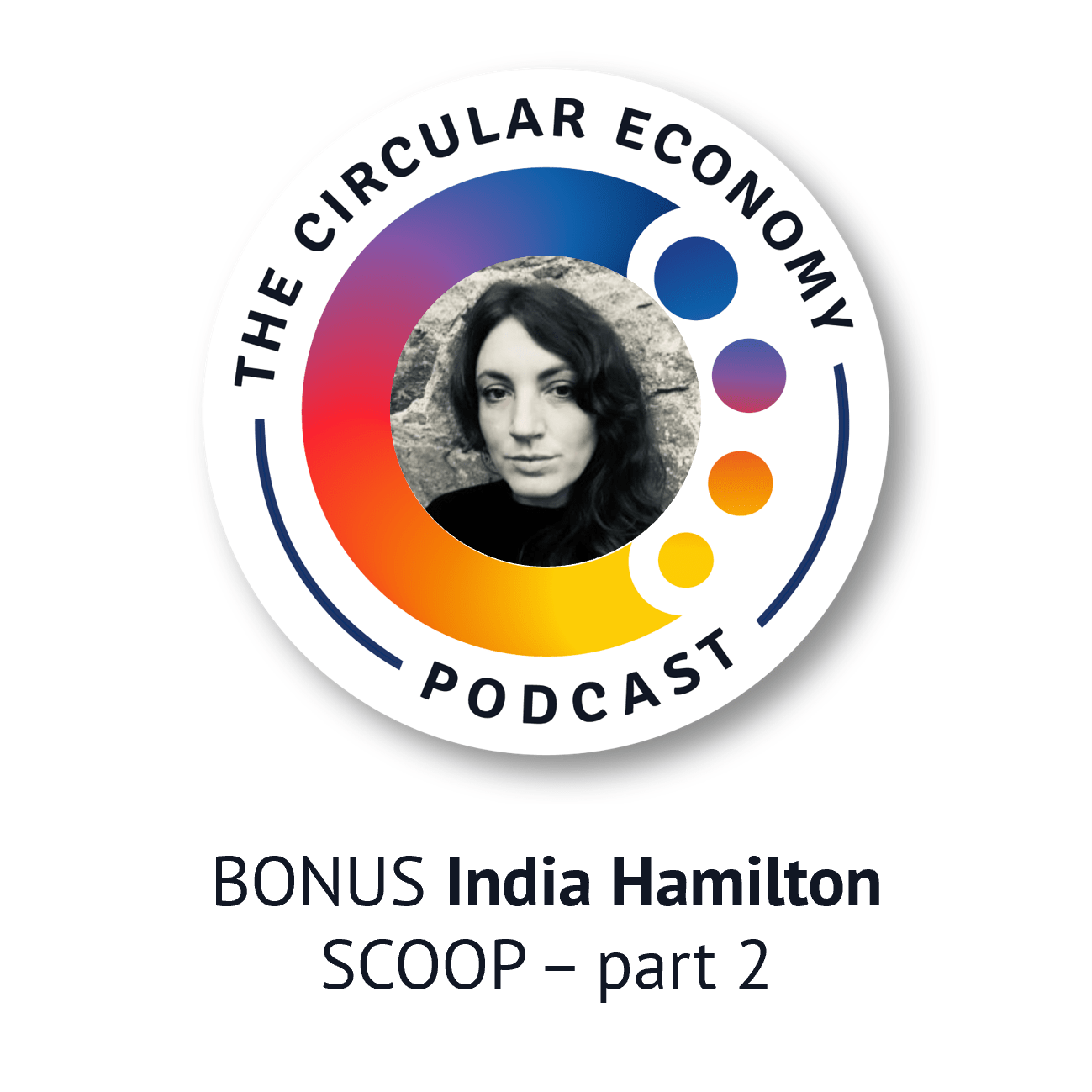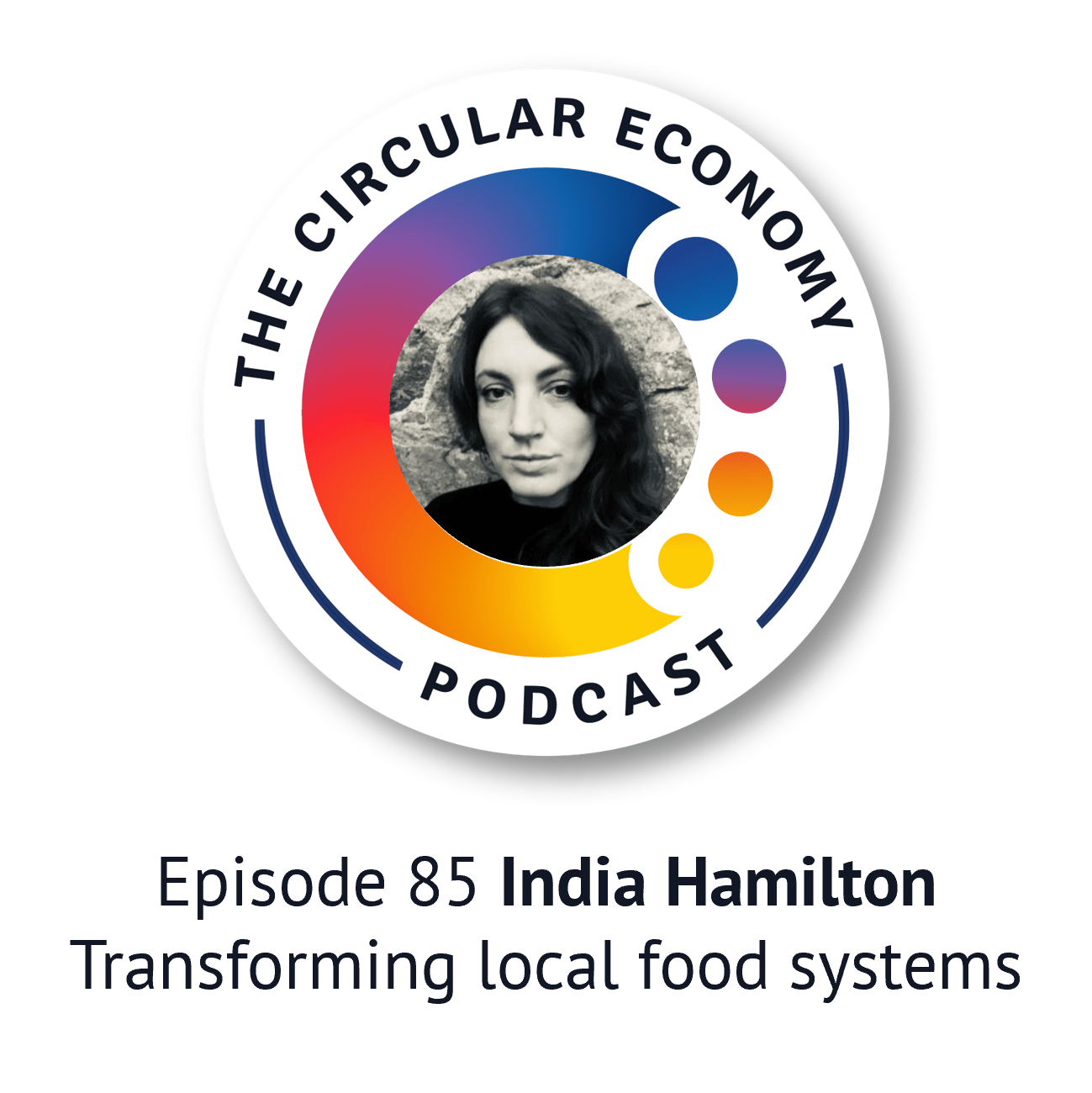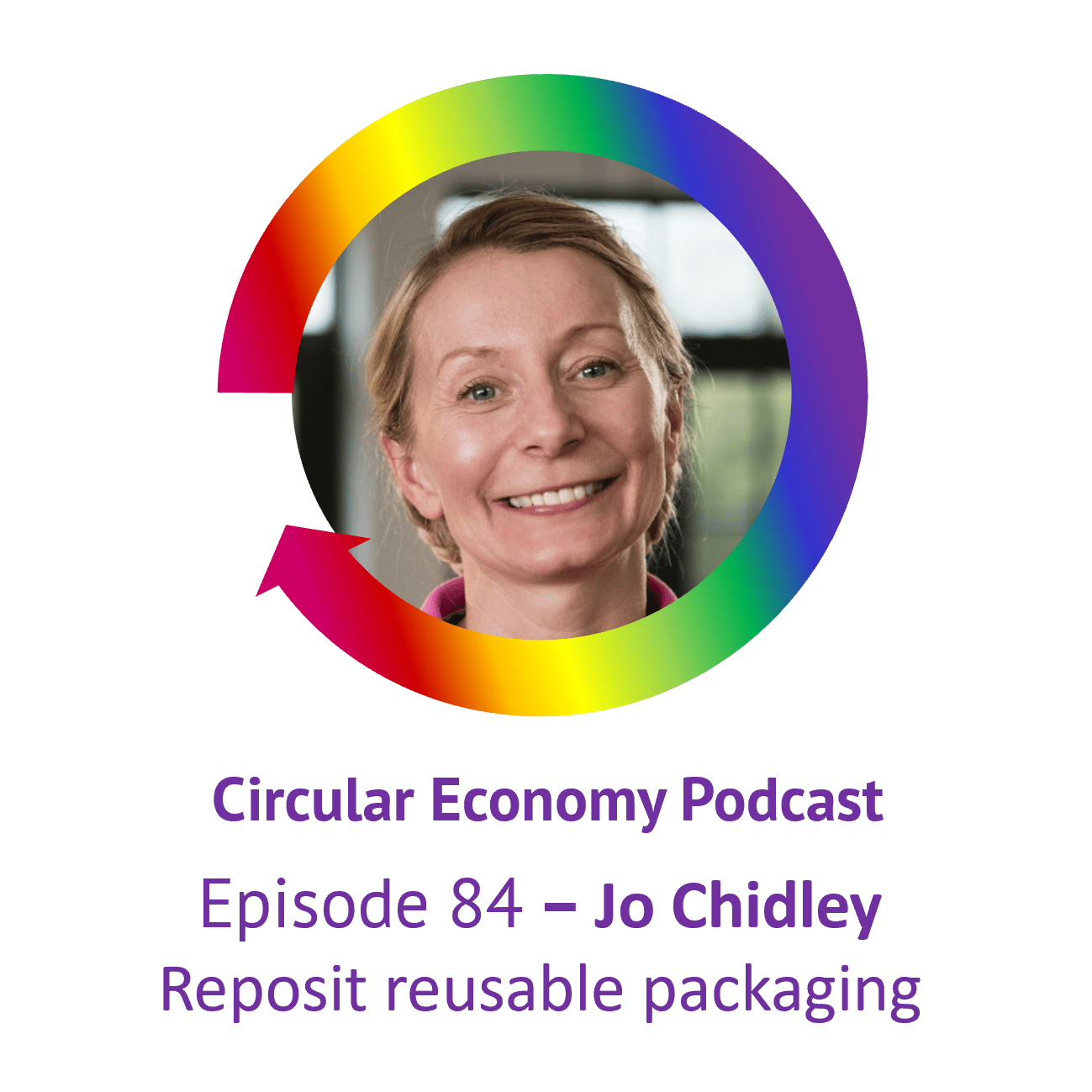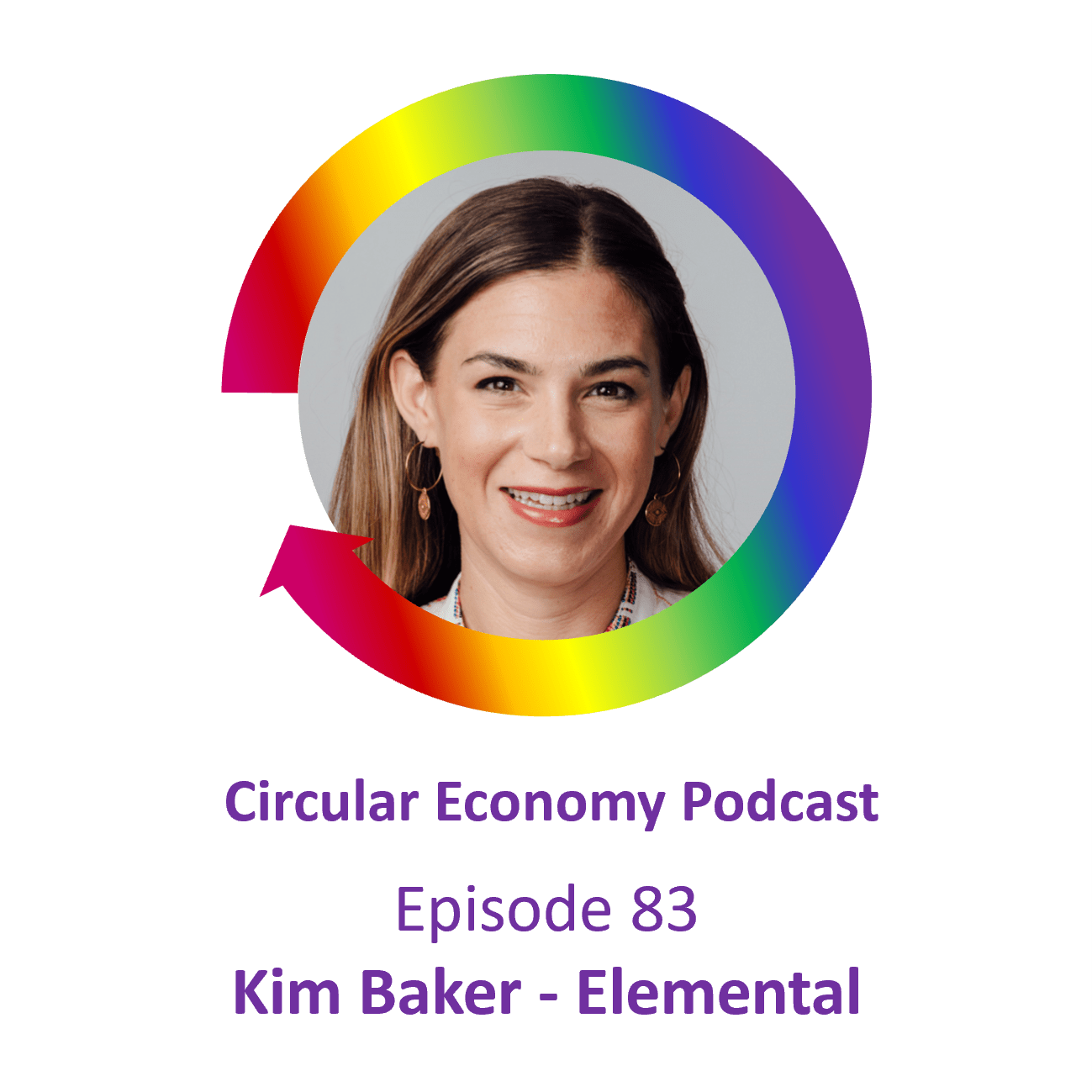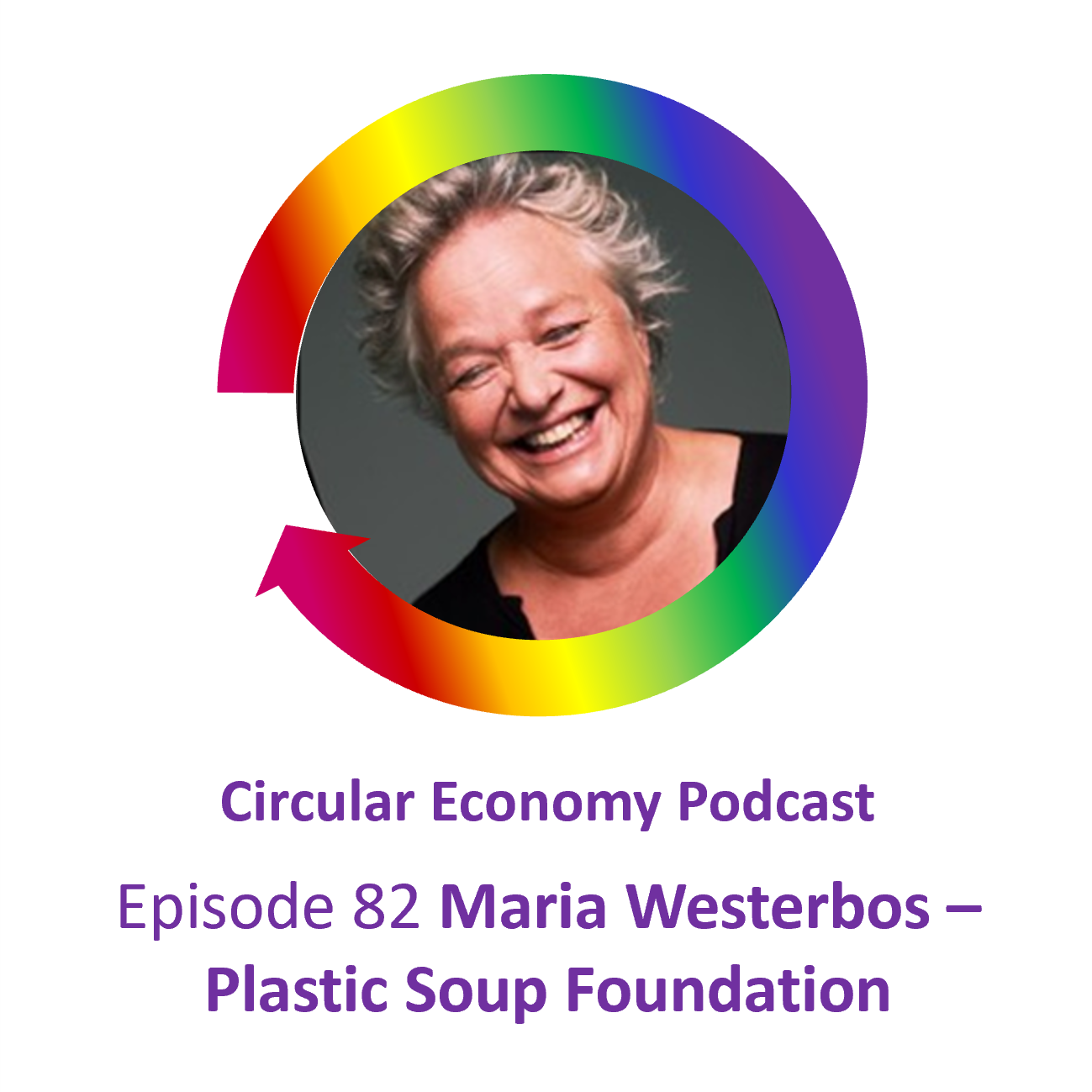Podcast: Play in new window | Download
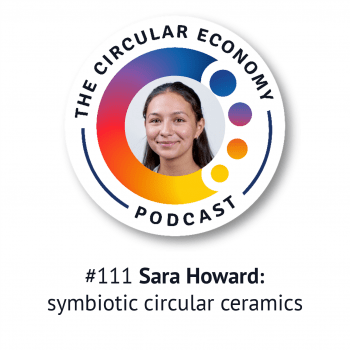
How might we design and make ceramics in a circular economy? Ceramic products make our lives better in all kinds of ways. Some have been around for centuries (think bricks, tiles, pottery), and some are much more modern, in microchips and more.
To help us learn about circular ceramics, we’re going to meet Sara Howard, a very impressive and award-winning ceramic designer and materials researcher, whose practice is focussed on reducing the environmental and societal impacts of ceramic production.
Sara graduated from Central St. Martins in 2020, with a BA Honours Degree in Ceramic Design. In her final year, Sara designed an industrial symbiosis around the ceramics industry, in which waste from one industry replaces the raw materials in ceramic production.
Sara wrote a book, Circular Ceramics, to openly share her methods and processes and help fellow ceramicists to adopt these sustainable processes in their own practices.
On top of that, since graduating just 3 years ago, Sara has created two groundbreaking projects, collaborating with ceramic producers, artists and other industries to implement the use of industrial waste on a larger scale. Sara tells us how she’s set up a project for ceramics made with excavation waste from construction sites, and is launching a circular tableware startup in Bali, complete with its own factory.
We’ll also find out about the key problems with modern ceramic production and why making new ceramics from ceramic waste is pretty much impossible.
International speaker, author and strategic advisor, Catherine Weetman helps people discover why circular, regenerative and fair solutions are better for people, planet – and prosperity.
Catherine’s award-winning book: A Circular Economy Handbook: How to Build a More Resilient, Competitive and Sustainable Business includes lots of practical examples and tips on getting started.
Stay in touch for free insights and updates…
Read on for a summary of the podcast and links to the people, organisations and other resources we mention.
Don’t forget, you can subscribe to the podcast series on iTunes, Google Podcasts, PlayerFM, Spotify, TuneIn, or search for “circular economy” in your favourite podcast app. Stay in touch to get free insights and updates, direct to your inbox…
You can also use our interactive, searchable podcast index to find episodes by sector, by region or by circular strategy. Plus, there is now a regular Circular Economy Podcast newsletter, so you get the latest episode show notes and links delivered to your inbox on Sunday morning, each fortnight. The newsletter includes a link to the episode page on our website, with an audio player. You can subscribe by clicking this link to update your preferences.
Links we mention in the episode:
Catherine’s work:
- Circular Economy Podcast on LinkedIn: linkedin.com/showcase/circular-economy-podcast/
- Circular Economy Podcast website: circulareconomypodcast.com
- Catherine Weetman on LinkedIn: https://www.linkedin.com/in/catherine-weetman-9419107/
- A Circular Economy Handbook: How to Build a More Resilient, Competitive and Sustainable Business – buy from any good bookseller, or direct from the publisher Kogan Page, which ships worldwide (free shipping to UK and US) https://www.koganpage.com/CircEcon2
- Interactive podcast index https://www.rethinkglobal.info/circular-economy-podcast-index/
- Rethink Global www.rethinkglobal.info
- Sign up to get the podcast player and shownotes for each new episode emailed to your inbox
Links for our guest:
- Website: sarahowardstudio.com
- Instagram: @sara__howard
- Email: sarahowardstudio@outlook.com
- Golden Earth Studio on Instagram: @goldenearthstudio
Books, people and organisations we mentioned
- Kalundborg Symbiosis https://www.symbiosis.dk/en/
Guest bio
Sara Howard is an award-winning ceramic designer and materials researcher, whose practice is focussed on reducing the environmental and societal impacts of ceramic production.
Sara graduated from Central St. Martins in 2020, studying BA Honours Degree in Ceramic Design. In her final year, Sara designed an industrial symbiosis around the ceramics industry, whereby waste from one industry replaces the raw materials in ceramic production. Sara’s methods and processes are shared in her book, Circular Ceramics, allowing fellow ceramicists to adopt the sustainable processes in their own practice.
Since 2020 Sara has continued to work on expanding the use of industrial waste streams, participated in exhibitions, and delivered lectures, workshops, and talks. Currently, Sara is collaborating with ceramic producers and mass manufacturers to implement the use of industrial waste on a larger scale.
Collaboration is at the core of Sara’s practice, and she believes sustainable solutions should not be locked away in patents. Accessibility and transparency have the potential to create systemic changes which have a wider positive ecological and societal impact.
Playlist: getting started with the circular economy…
Want to know more about the what the circular economy really is, and how it can help your business? Here’s a playlist to help you get to grips with the concept, how it creates value, and the common myths (spoiler alert – it’s much more than recycling!)
- #1 What is the circular economy: A quick intro to explain what the circular economy is and why it’s important. We explore how it helps create better products and services, and at the same time helps to make a better world. I break it down into my 5 circular economy components, helping you think about each part of your business.
- #2 The linear economy and your risk checklist: We dig a bit deeper into the way we do business now, the linear economy, and why that’s creating problems for business, society and our living planet. Also, we’ll look at the risks that emerge from those big-picture issues, and how they might affect your organisation.
- #90 Does circular mean it’s sustainable? Catherine Weetman is worried that companies are using circular economy solutions to grow their business (and their footprints).
- #101 Circular is better for people, planet and profit! How three simple strategies can help you get started with circular and regenerative solutions that are better for people, planet and profit.
- #120 Priorities are changing: people find life is better when we care for and share things – circular economy strategies make that better for business, too.
And here’s Catherine’s guide: What is the circular economy?
Want to dig deeper?
Why not buy Catherine’s award-winning book, A Circular Economy Handbook: How to Build a More Resilient, Competitive and Sustainable Business. This comprehensive guide uses a bottom-up, practical approach, and includes hundreds of real examples from around the world, to help you really ‘get’ the circular economy. Even better, you’ll be inspired with ideas to make your own business more competitive, resilient and sustainable.
Please let us know what you think of the podcast – and we’d love it if you could leave us a review on iTunes, or wherever you find your podcasts. Or send us an email…
Please let us know what you think of the podcast – and we’d love it if you could leave us a review on iTunes, or wherever you find your podcasts. Or send us an email…
Podcast music
Thanks to Belinda O’Hooley and Heidi Tidow, otherwise known as the brilliant, inventive and generous folk duo, O’Hooley & Tidow for allowing me to use the instrumentals from the live version of Summat’s Brewin’ as music for the podcast. You can find the whole track (inspired by the Copper Family song “Oh Good Ale”) on their album, also called Summat’s Brewin’. Or, follow them on Twitter.
